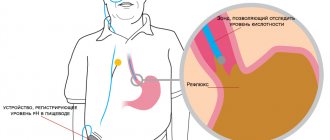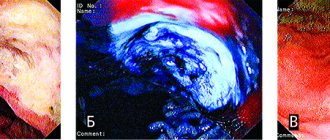The modern rhythm of life, quick snacks in fast foods, frequent worries and stress cannot but affect health. One of the common ailments is discomfort and heaviness in the stomach.
Heaviness in the stomach is a state of functional disturbance of the gastrointestinal tract due to current or chronic diseases, as well as in the event of a poor diet.
As a rule, a person suffers from heaviness in the stomach, feeling the following consequences:
- physical activity is limited;
- there is a feeling of difficulty in performing daily activities.
In general, it is already difficult to follow the usual way of life. If heaviness in the stomach, bloating, belching, pain, vomiting, constipation and other characteristic sensations periodically bother a person, it is necessary to undergo various examinations by a gastroenterologist and follow his recommendations. In other cases, you need to understand the reasons related to your current diet and lifestyle.
Poor nutrition
Some of the most common causes of heaviness in the stomach include the following:
- binge eating. Too much food in the stomach leads to excessive stretching of its walls, which disrupts the digestion of food. As a result, there is a slow movement of food through the gastrointestinal tract, which causes a feeling of heaviness in the upper abdomen, difficulties with bowel movements and other digestive problems;
- eating cold foods. Eating chilled and frozen foods stimulates the motor function of the stomach, as a result of which digestive processes occur excessively quickly and are manifested by loose stools;
- non-compliance with diet. A feeling of heaviness in the stomach and abdomen is often caused by too long periods of time between meals, as well as an incorrect diet. One of the common causes of digestive disorders is the habit of having a heavy dinner before bed: the stomach, not having the opportunity to rest at night, may show its “dissatisfaction” with a feeling of heaviness after eating;
- changes in diet (rich feast). An unusually large meal overloads the digestive organs, which are unable to process the contents of the stomach with acids and enzymes. As a result, a feeling of heaviness and fullness develops in the upper abdomen;
- irritating food. Foods that can disrupt digestive processes include not only fried, spicy, fatty foods, but also foods rich in carbohydrates (potatoes, sweets, baked goods), protein (eggs, legumes, mushrooms) and fast food.
Drinks that irritate the gastric mucosa include tea, coffee, kvass, as well as carbonated and alcoholic drinks.
In some cases, indigestion may occur after eating whole milk and dishes in which it was used. This may indicate an individual intolerance to the components of milk; when it is excluded from the diet, digestion, as a rule, normalizes.
Heaviness in the stomach: what medications to take?
Any independent treatment of diseases of the stomach and digestive system is contraindicated. However, if the doctor has already examined the body and does not see gastrointestinal pathologies as the causes of heaviness in the abdomen , and also in cases where it is impossible to organize an immediate trip to the doctor, pay attention to some recommendations. Need to:
- Switch to an enhanced drinking regimen. When heaviness in the stomach occurs, stomach pills for various symptoms of gastrointestinal dysfunction may not be necessary; you should drink at least 1.5-2 liters of water per day and exclude (limit) the intake of junk food. Over time, the unpleasant sensation in the form of pain and heaviness in the abdomen may go away on its own.
- Take enterosorbents . For example, Sorbex® is a new generation sorbent made on the basis of granular activated carbon, which helps not to cure, but to alleviate an unpleasant symptom in the abdomen. The active substance quickly adsorbs toxins that cause increased gas formation, pain, heaviness, and removes them from the body in a natural way. The heaviness in the stomach is felt less a short time after taking it.
SORBEX® Duo
SORBEX® Classic
SORBEX® Ultra
Adults can choose Sorbex®Duo or Sorbex®Ultra . You need to follow the instructions for the products and take up to 3 capsules at a time, depending on the drug, 1-2 hours before or 1-2 hours after meals and taking medications (any, not only for restoring the gastrointestinal tract and for heaviness in the abdomen ).
A healthy lifestyle, balanced diet and the presence of auxiliary additives in the first aid kit in the form of Sorbex® will allow a person not to worry about how to urgently relieve heaviness in the stomach.
The drug Sorbex® and the dietary supplement Sorbex Ultra reduce the absorption of gases, toxins, and other substances and promote their elimination. Sorbex® and Sorbex Ultra bind and neutralize “heavy” food components and prevent excess fats from being absorbed, and thus not only eliminate discomfort, but also promote weight loss.
If the cause is not related to heavy food Sorbex Ultra as early as possible to prevent poisoning and quickly remove toxins.
No poisoning leaves its mark on the liver and gallbladder. It is the liver that is the first to be hit by toxins.
The dietary supplement SORBEX® DUO, unique in its composition, is the first aid for the liver in case of poisoning and after it. SORBEX® DUO contains granular activated carbon and milk thistle extract. This composition allows you not only to effectively cope with intoxication, but also to support and cleanse the liver.
To reduce unpleasant symptoms against the background of increased gas formation, it is recommended to take medications and dietary supplements based on activated carbon - Sorbex® and Sorbex Ultra.
Attention! Self-medication can harm your health
How you can help
If you already feel a feeling of fullness in the stomach after eating, it is necessary to perform certain actions that will restore the functioning of the gastrointestinal tract.
Try to abstain from food for several hours, replacing it with drinking still water. It will also be useful to lie down for a few minutes, stretch out your whole body and breathe deeply, and then take a leisurely walk - no matter on the street or around the room.
Despite the feeling of discomfort in your stomach that you experience, try not to go to bed, on the contrary: you should maintain an upright position for 1–3 hours.
What to do if you have stomach discomfort
Preventive measures and treatment of discomfort in the stomach will largely depend on the cause of the pathology.
If the symptom appears after eating, then you should pay attention to your eating habits:
- You shouldn't rush at the table. Food should be chewed thoroughly;
- Meals should be increased to 5-6 times a day. Portions should be small, preferably eaten at the same time;
- Reduce consumption of fried, fatty and overly salty foods;
- Don’t “seize the problem.” A stressful situation can lead to overeating, which has a bad effect on the gastrointestinal tract;
- Do not eat very cold or hot food. A sharp temperature change can lead to irritation of the gastric mucosa. Warm food should be preferred;
- Alcohol is a bad companion for lunch or dinner;
- Discomfort may also occur when consuming foods high in preservatives, dyes and flavors;
- It is better to stop drinking carbonated drinks.
The feeling of a full stomach after eating generally has the same reasons as discomfort: poor diet, allergies (for example, lactose intolerance), alcohol and stress. It can also occur in pregnant women due to increased stomach acidity, and is then accompanied by nausea. In addition, the fetus itself can put pressure on internal organs, including the stomach and intestines.
Discomfort and feelings of fullness can be overcome quickly and without problems if you know which medicine gives the desired effect.
Correction of diet
To normalize the functioning of the gastrointestinal tract, the diet and quality of nutrition are crucial. Eating at certain hours “accustoms” the stomach to secrete digestive juices at this time, which ensures correct and uniform processing of food by enzymes and acids. Controlling the amount of food you eat helps prevent overeating and, accordingly, avoid stretching the walls of the stomach.
The quality of food also plays an important role. By avoiding fatty, fried, smoked and other similar foods or by reducing the amount of “heavy” food in the diet to a minimum, you can significantly ease the work of the gastrointestinal tract and prevent the development of a feeling of heaviness.
What tests and studies need to be done to make a diagnosis?
To find out the cause of this symptom, it is necessary to carry out a number of diagnostic procedures. To determine the functional state of the patient’s digestive system, the doctor prescribes laboratory and instrumental studies.
In the first group, stool analysis is of greatest importance. Changes in its indicators may indicate a violation of the liver, insufficiency of digestive enzymes. If there is a suspicion of the infectious nature of the disease, a bacteriological study is carried out, which makes it possible to determine the causative agent.
Among the instrumental methods, ultrasound of the abdominal organs is most often used. It allows you to roughly assess the condition of the digestive system.
If gastritis and peptic ulcer of the stomach and duodenum are suspected, an FGDS is performed. A special tube is inserted into the patient's esophagus, at the end of which a camera with a light is attached. The doctor gradually carries it up to the duodenum and visually assesses the condition of the mucous membrane of the digestive tract. This way you can determine the presence of inflammatory changes, loss of integrity and other signs of pathology. In some cases, during an FGDS, the doctor takes material for a biopsy - pinches off a microscopic piece of tissue, which is then examined under a microscope.
Stomach ulcer
Gastric ulcer is a lesion of the walls of the gastric mucosa.
This is a more serious disease, which is characterized by damage to the wall of the gastric mucosa in the form of the formation of defects (ulcers).
The causes are similar to those that cause gastritis. The symptoms are also similar. Therefore, in order to differentiate gastritis and gastric ulcers, it is necessary to undergo a special examination.
It is necessary to treat a stomach ulcer, as it can become a harbinger of other, even more serious pathologies and diseases that will require surgical intervention. Complications of peptic ulcer disease include:
- perforation (through-type defect in the wall of the stomach);
- bleeding;
- degeneration of an ulcer into a malignant formation.
These conditions threaten not only human health, but also human life. In addition to the symptoms described above, the following signs are added to the manifestations of a stomach ulcer:
- night pain in the epigastric region;
- vomiting of sour contents;
- seasonal exacerbations, which manifest themselves as an increase in the intensity of symptoms in spring and autumn.
Stenosis (narrowing) of the part of the stomach in the area of the so-called pylorus. It looks like a scar thickening located in the exiting section. Formed as a result of peptic ulcer disease or damage to the stomach by a tumor. Symptoms:
- heaviness in the epigastrium;
- diffuse stomach pain;
- nausea;
- vomiting of stagnant food (sometimes eaten several days before the attack).
This condition poses a clear threat to life, since developed (complete) stenosis does not allow food to pass further into the intestinal area, resulting in depletion of the body and death.
What foods should you eat?
Some of the healthiest foods for the stomach are those that contain fiber. For example, vegetables, fruits, bran, grains. Such products take a long time to digest and at the same time have a beneficial effect on the digestive system and activate gastric motility.
The richest fruit in terms of fiber content is banana. In other fruits and vegetables, the bulk of this beneficial component is contained in the peel. Therefore, it is better to eat them fresh or in the form of vegetable salads dressed with vegetable oil. It’s good to add greens to this dish. Only if you have no contraindications, stomach pain, ulcers, gastritis.
It is better to eat whole grain bread, it has a lot of fiber.
Dairy products such as kefir, fermented baked milk, cottage cheese, cheese, and sour cream are especially useful. They normalize acidity and contain calcium, vitamins A, B1, B2, B12.
For people suffering from gastritis and ulcers, a diet containing cereals, such as semolina, rolled oats, rice, buckwheat, is recommended; it is better to eat them mashed or well boiled, so as not to disturb the mucous membrane with coarse particles. These cereals are rich in potassium and magnesium. At the same time, they have a beneficial effect on the mucous membrane of the digestive organs and promote healing of the irritated surface.
Therapeutic diet
Nutritionists recommend developing a menu for the week, this will make it easier to give up unhealthy foods and your body will receive the nutrition it needs on time.
| day of the week | meal | dishes |
| Monday |
|
|
| Tuesday |
|
|
| Wednesday |
|
|
| Thursday |
|
|
| Friday |
|
|
| Saturday |
|
|
| Sunday |
|
|
The menu is a recommendation only. After a specialist has determined the causes of the ailment, it is necessary to obtain recommendations from him on the necessary diet.
Diagnostic methods
If discomfort or pain becomes periodic or lasts for several days, then you should consult a doctor. A gastroenterologist deals with these issues.
The following diagnostic methods are used to identify pathologies:
- gastric juice studies;
- stool, urine, blood tests;
- Ultrasound;
- gastroscopy;
- fluoroscopy.
Thanks to these diagnostic methods, a specialist will identify the causes of pain in the stomach. After this, the gastroenterologist will select treatment methods, diet, and medications to effectively eliminate discomfort in the digestive system.
Heavy foods for the stomach
Below is a list of foods that are not good for the stomach. They can irritate the walls and lead to painful conditions of the digestive organs and the formation of ulcers, bloating, pain, difficult digestion, and heartburn. These products include:
- fast food;
- fatty food;
- fried foods;
- very spicy food;
- high consumption of herbs and spices;
- low-quality products (spoiled);
- alcohol and soda;
Belching and nausea after eating
Nausea, belching and stomach pain can be symptoms of diseases such as cholecystitis, gastritis or pancreatitis. In addition, a person may experience pain in the right side and sometimes vomiting. Many gastrointestinal diseases have similar symptoms, which only a specialist can understand. Therefore, you should not take risks; entrust the treatment of constant heaviness in the stomach to a doctor, who, after the necessary research, will make the correct diagnosis and prescribe treatment.
On our website https://www.dobrobut.com/ you can familiarize yourself with the list of services provided and the qualifications of specialists.
Malignant tumor of the stomach (cancer)
The insidiousness of this disease is that for a long time it may not make itself felt. Then the first signs appear: heaviness, unstable stools, nausea and rare vomiting.
When the disease reaches its apogee, it manifests itself in increased pain and frequent vomiting. At the same time, accompanying signs appear that indicate the occurrence of a malignant formation in the stomach. This:
- fatigue and weakness;
- anemia, slightly elevated temperature;
- decreased appetite and weight loss.
Chronic pancreatitis. Develops as a result of a pathological process affecting the pancreas. Causes:
- alcohol abuse;
- formation of gallstones;
- serious errors in nutrition;
- damage to gland tissue of a viral or traumatic nature, resulting in a decrease in its capacity.
Signs:
- heaviness in the epigastrium;
- nausea and bloating;
- widespread pain in the left hypochondrium, near the navel and in the back at the level of the lower ribs. Such pains are also called shingles;
- frequent vomiting;
- The most obvious manifestation of the disease is “greasy, light yellow, mushy stool, which, due to the high content of unprocessed fats in it, is poorly washed off the walls of the toilet.









